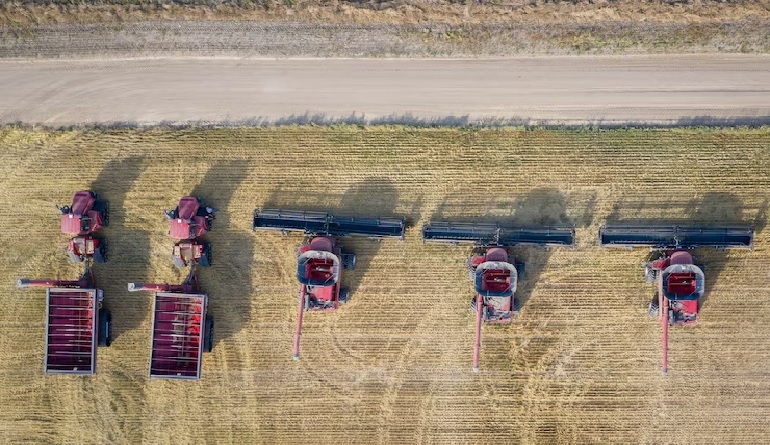
ATM News Network: In a recent report, the standing committee on agriculture, animal husbandry, and food processing (2022-23) has highlighted the critical role of research and development (R&D) in farm mechanisation, particularly for small and marginal farmers. The committee emphasised that increased investment in this sector is vital for boosting agricultural production and productivity in the country.
According to the report, the agriculture ministry has witnessed a 30% reduction in funds allocated for research and development in the farm mechanisation scheme between FY20 and FY23. This decline in funding raises concerns about the progress in mechanisation for small farmers.
As of now, the overall agricultural mechanisation level in India stands at approximately 47%, which is lower than that of other developing countries such as China (59.5%) and Brazil (75%). The panel has called upon the agriculture ministry to strive for achieving 75% mechanisation in a much shorter period than initially planned.
Agricultural mechanisation has proven to be beneficial in various ways, leading to savings in seed (15%-20%), fertilizer (15%-20%), cropping intensity (5%-20%), increased crop yield (13%-23%), improved germination rate (7%-25%), and reduced labour costs (20%-30%).
Currently, a significant 86% of total land holdings belong to small and marginal farmers, requiring special efforts to promote mechanisation. The agriculture ministry's sub-mission on agricultural mechanisation scheme offers a subsidy of around 40-50% of equipment costs to aid small and marginal farmers in purchasing essential machinery such as tractors, power tillers, combine harvesters, rotavators, and rice transplanters.
The report applauds the government's efforts in supporting farmers by providing subsidies to enhance farm input and power availability. An allocation of Rs 5,490 crore during 2014-15 to 2022-23 was made for this purpose.
The panel also highlighted the surge in demand for equipment like tractors, power tillers, combine harvesters, rotavators, threshers, and rice transplanters in recent years. It has urged the agriculture ministry to conduct a systematic study to assess the mechanisation level in the country objectively.
In conclusion, the parliamentary panel stresses the urgent need for increased investment in research and development for farm mechanisation, especially for the benefit of small and marginal farmers. With enhanced mechanisation, India's agricultural sector can witness substantial growth and productivity, benefiting the entire farming community.